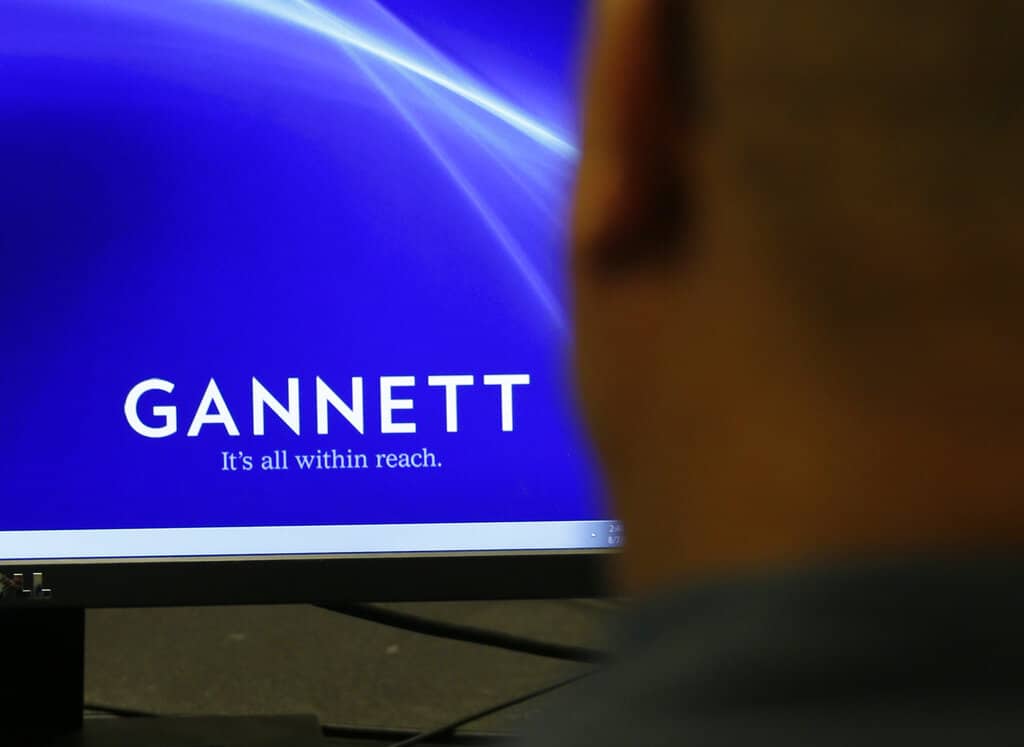When Jeff Bezos, billionaire owner of The Washington Post, suddenly ordered the newspaper not to endorse a presidential candidate, more than 250,000 readers rebelled and canceled their subscriptions.
It was a stunning move by Bezos, but pales in scope compared to the Gannett Co.’s prohibition of presidential endorsements in its more than 200 newspapers and news outlets.
This week Politico reported that no Gannett properties would endorse in the presidential race, but that they still had the freedom to endorse in local races.
“Why are we doing this? Because we believe America’s future is decided locally — one race at a time,” USA TODAY spokesperson Lark-Marie Antón said, according to Politico.
Gannett denies that the presidential endorsement ban was made after the Post decision, alluding to an internal report by a committee of the company’s editors in 2022.
The Washington Post reported at the time that “USA Today and more than 250 dailies — have begun to radically shrink and reimagine their editorial sections, publishing them on fewer days each week and dropping traditional features such as syndicated columns and editorial cartoons. Even political endorsements and letters to the editor are being scaled back.”
At the time, the company characterized these moves as recommendations and told the Post they were not mandatory. We didn’t know otherwise until this week when the company confirmed the elimination of presidential endorsements.
The company has essentially issued a gag order so that no matter how important the presidential election may be to a specific community, the local editorial board can’t publish its opinion.
You won’t see The Detroit Free Press’ take on which candidate is better for Michigan’s economy. Or the El Paso Times’ sense of the better candidate to address immigration. Or the Sarasota Herald-Tribune’s view on who can best address environmental concerns.
Those editorial editors in local markets largely do extraordinary work, striving daily to reflect their communities’ concerns. Endorsements are made by editorial boards, which often include local residents. The resulting endorsements are usually thoughtful and balanced.
It was about 45 years ago that Gannett adopted a new motto: “A World of Different Voices Where Freedom Speaks.” It was a poetic way of saying that while the growing company was going to keep a close eye on business operations and profit margins, local newsrooms were going to be able to publish the news independently, reflecting the needs and interests of their respective hometowns.
Gannett had been on a spree buying local newspapers and this motto offered some assurance to the family owners of papers they sought to buy.
It was also largely true. I worked many years for the Gannett company, including serving as editor of its flagship USA TODAY, the Green Bay Press Gazette, Gannett Suburban Newspapers in New York and Florida Today in Melbourne, Fla. In all of those jobs, I reviewed and signed off on daily editorials. Over a span of 15 years, there was no hint of corporate interference with what we published.
USA TODAY was so committed to the free flow of opinions that for years it published its lead editorial along with a guest piece telling us why we were wrong. That included presidential endorsements. There are some who will say, “Why do you think you can tell us how to vote?” and I understand the sentiment. That’s not what good editorials do, though.
I’ve always felt that newspapers should do the hard work of sorting through candidates’ attributes and making the same hard decision every voter has to make. An endorsement is not intended to say, “Vote this way.” Instead, it’s an illumination, a careful assessment of candidates’ merits and some thoughts about why one might be a better choice than others.
There’s no question that news organization endorsements are in decline, and it’s for business reasons. As traditional news media strive to maintain their existing audiences in a highly polarized society, they fear alienating a significant percentage of readers. It’s a practical decision, not a lofty one, and not done on the fly.
Indeed, it may be that the digital transformation of American news media means that earnest media endorsements no longer have the value they once did. That decision, though, needs to come well in advance of elections.
A company culture can change pretty dramatically when a business is sold. New Media Investment Group (nee Gatehouse) acquired Gannett in 2019. It kept the name, but not the values or most of the employees.
Maybe the new Gannett can dust off that circa-1980 motto to make its new standards clear. Perhaps “A World of Different Properties Where No One Speaks Without Our Permission.” It’s a tough time for freedom of the press.
This article has been updated to reflect that Gannett held in-house discussions of the value of endorsements in 2022, and shared non-mandatory recommendations at the time.
Ken Paulson is director of the Free Speech Center at Middle Tennessee State University and a former Gannett journalist.
The Free Speech Center newsletter offers a digest of First Amendment and news-media news every other week. Subscribe for free here: https://bit.ly/3kG9uiJ

